"Laughter, Tears, and Resilience: The Journey of Mothers of Wounded Soldiers"
After Michal Asban's son was severely injured in war, her mission shifted to supporting fellow mothers of wounded soldiers. "The hardest part is being alone through all this," she says, sharing how her journey of outreach began with gifting earrings.
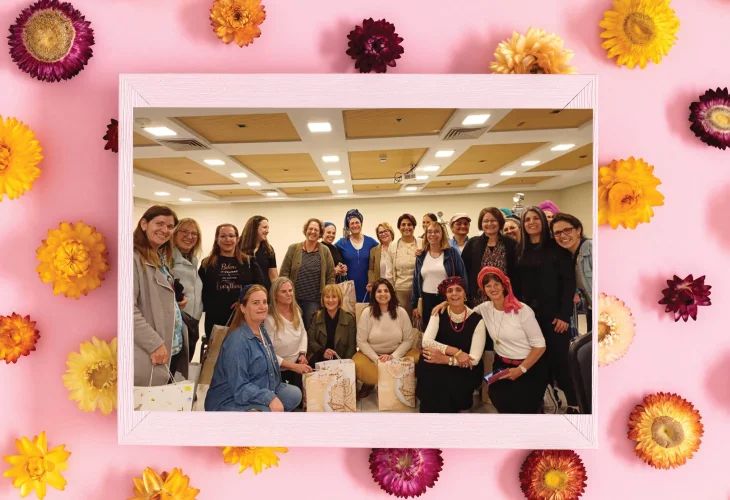
At first glance, they appear like any ordinary group of women, maybe on a team retreat or having a fun day out. They're laughing by the pool, enjoying a comedy show, making jewelry in a workshop, and singing their hearts out late into the night.
Upon closer look, it's evident they're not ordinary women. They're lioness mothers. Some came directly from the hospital where their sons are recovering, unsure how long the stay will be. Others are dealing with sons who are home but still severely injured and in need of ongoing rehabilitation.
"Yet the difficulty doesn't overshadow the shared enjoyment and experience," explains Michal Asban, who organizes these days for mothers of wounded soldiers. "We laugh, we cry, but most importantly, we gather strength," she says. "That's the goal."
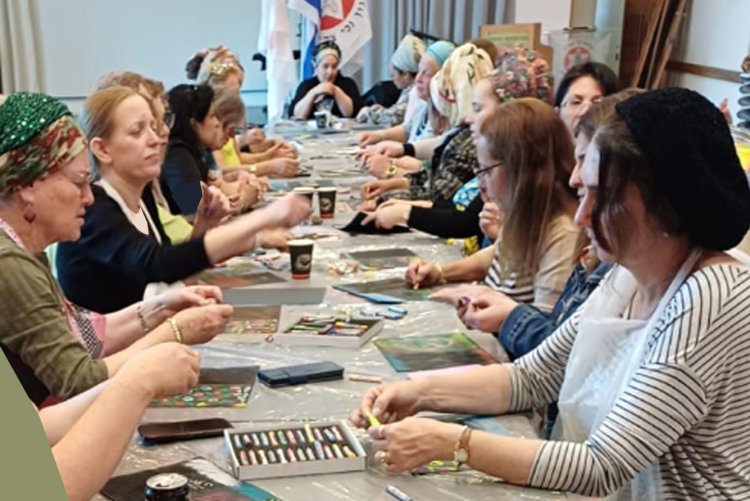
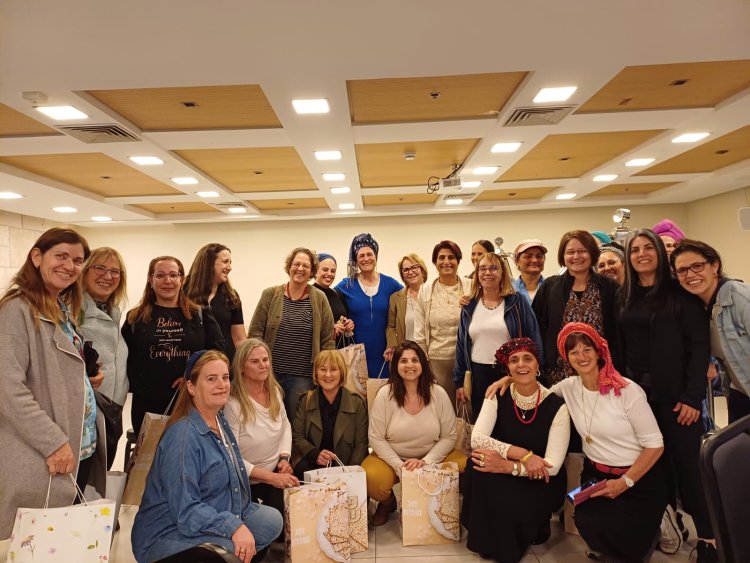
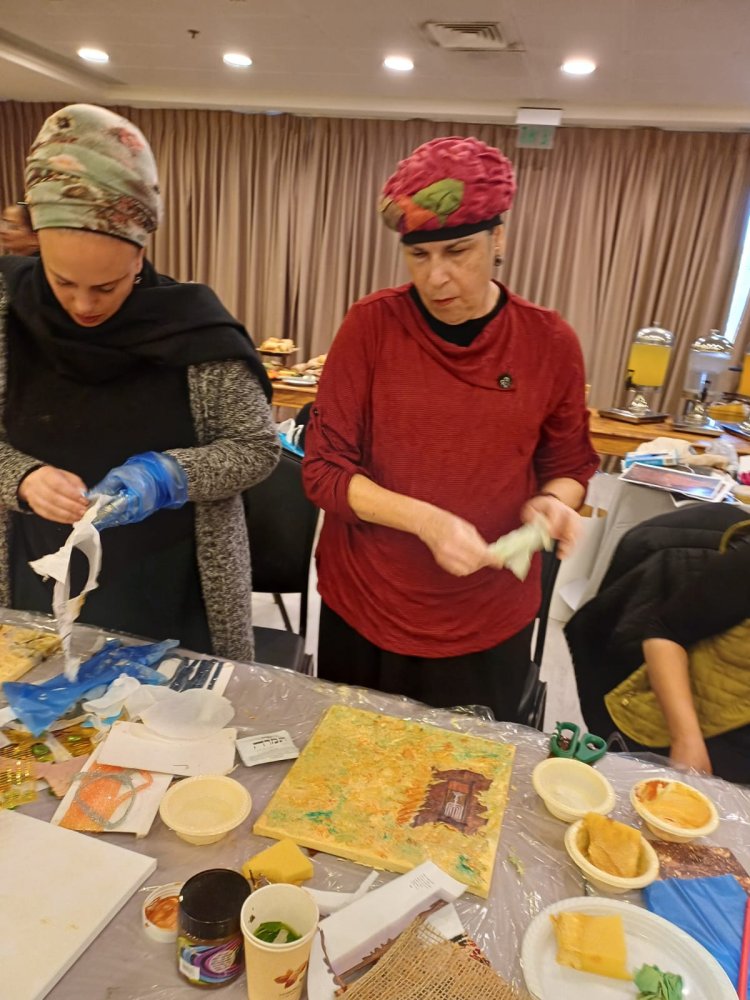
Life Comes to a Halt
For over a year, Michal has dedicated all her energy and time to supporting mothers of wounded soldiers. Her son Yotam was also severely injured in war.
"Yotam studied at the Mercaz HaRav Yeshiva and was in a special program for religious soldiers in the paratroopers," Michal shares. "They offered him officer training early on, and after initial hesitations, he decided to strive for excellence and began a squad commander's course. Shortly after, his unit entered Gaza. They fought there for four months, allowed to leave only once a month. At the course completion ceremony, we saw soldiers who had finished with honors but at great personal cost. It was incredibly hard."
About three weeks later, tragedy struck. Michal recounts that Yotam was leading a group of religious soldiers in the paratroopers in Gaza when a tragic incident resulted in the death of five of his soldiers, while Yotam and another were severely injured.
Michal emphasizes what a miracle Yotam's recovery has been. "He went through a lot but is functioning well now, over a year later, with daily rehabilitation. He's alive, healthy, and functional with body and mind intact, something we are endlessly grateful for."
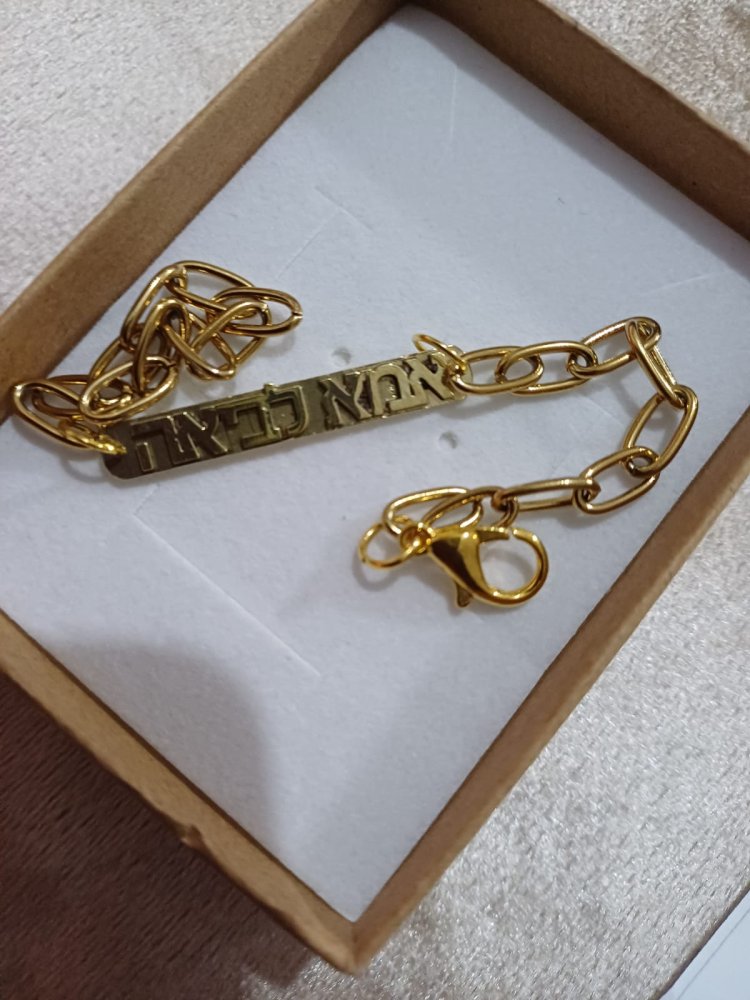
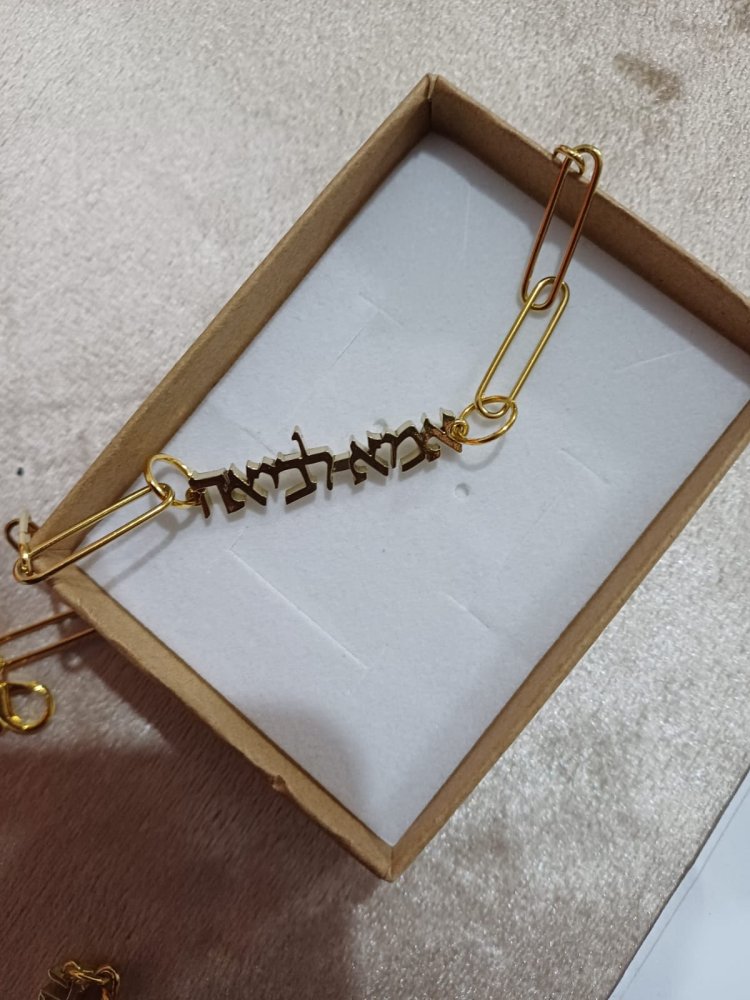
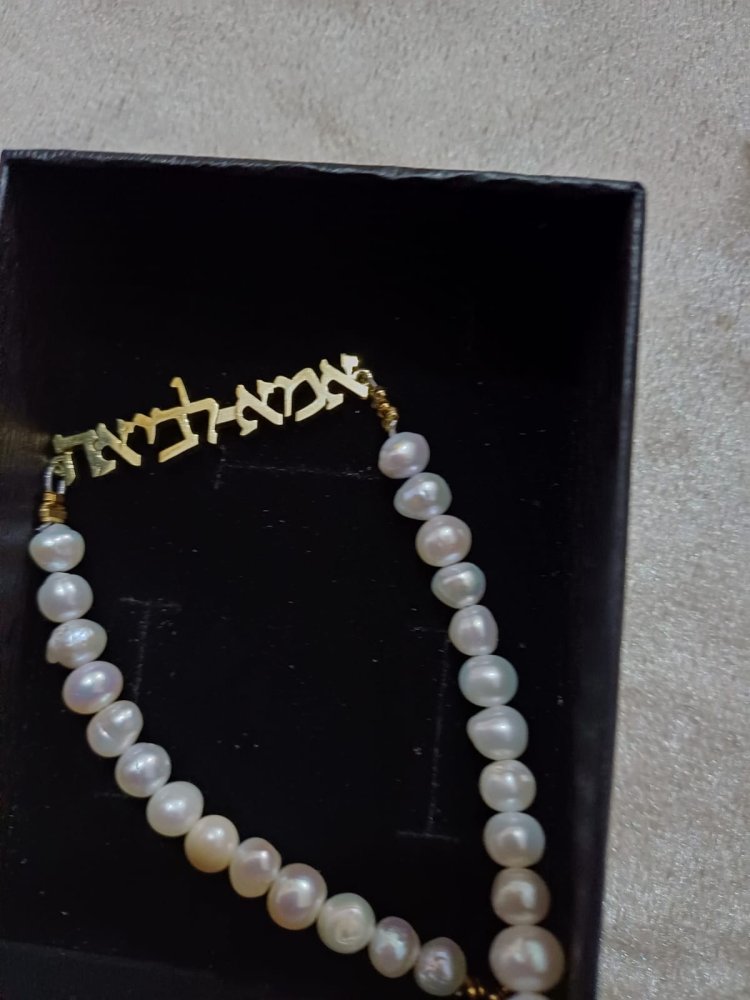
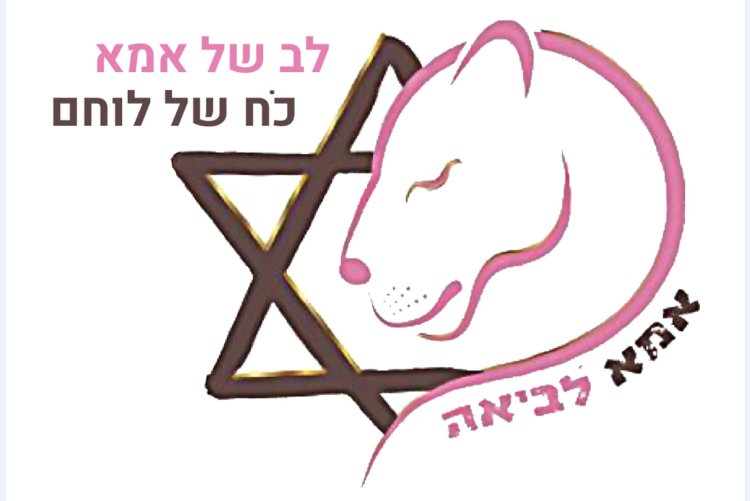
Jewels for Mothers
During Yotam's time in intensive care, Michal saw many other mothers of wounded soldiers. "I saw their pain," she says, "and felt their struggle along with my own. Then, I vowed to do something to bring happiness to these courageous mothers."
Michal began crafting beautiful earrings to lift these mothers' spirits, even when Yotam was still in intensive care. "I am a professional jeweler," she explains, "and I did what I could to bring a smile to their faces."
A month after Yotam’s injury, the hospital informed Michal’s family that a rehab bed had opened, and they quickly transitioned there. "That's when I met more mothers, some by their children's beds for months, enduring immense pain," she recalls. "I started making jewels for them again, and when someone asked why only a few, I explained the materials were costly. They replied, 'Make them, and I'll cover it.'"
And so it went; soon, we distributed jewelry to around 250 mothers, sparking incredibly moving responses. Even after Yotam returned home, Michal kept in touch, supported by volunteer Hanan Barel, who secured funding for materials.
"Hanan once shared a heart-wrenching video of a blind soldier feeling one of our creations, asking 'what’s this?' When told, 'A jewel for your lioness mother,' he handed it to her. Such moments are invaluable," Michal shares.
Time to Rest and Recharge
Once Yotam returned home for day rehab, Michal launched a new initiative: a special 'Day of Air' for the mothers of the wounded. "I wanted them to escape the hospital environment briefly," she explains. "Initially, I planned just one, but it was so successful, I organized many more, with remarkable participation."
Michal describes these events as profoundly touching: "Mothers cried on each other's shoulders, embraced one another, drawing immense strength." She credits her cousin, Gadi Friber, who runs Hotel Ya'arim near Jerusalem, for offering the venue and enabling these full, vibrant days featuring stand-up comedy, art workshops, group singing, and informative talks. "Each event brings around 40 mothers, and many more look forward to attending," Michal notes.
How do mothers of seriously injured soldiers tear themselves away for a day just for themselves?
Michal isn't surprised by this question, explaining: "From experience, I know there are two stages post-injury – the initial one where mothers are shattered, doing little beyond praying by their child's hospital bed.
"But as time passes, life stabilizes into a new normal. Even with challenges, the need for a break becomes crucial, as does meeting other mothers in similar situations. That’s why each 'Day of Air' includes a shared circle where mothers can talk about themselves and their child's injury. Mothers tell me these exchanges gave them strength for the entire day because there's nothing harder than being alone at home with sadness and tears. We always ensure each mother leaves with a lovely gift, often handcrafted jewelry they've made themselves."
Speaking of jewelry, Michal led a meaningful project recently, distributing 250 pearl bracelets made with students from Ulpanat Givat Shmuel, where she teaches. "We gifted them to the injured soldiers' sisters, acknowledging that they, too, spend countless hours by their brothers’ sides. We received wonderful feedback, appreciating these thoughtful gestures."
What about the wives of the injured? Have they been considered?
"Of course," Michal says, "but the wives quickly organized their own group, advocating for their rights, which is justified. Simultaneously, I founded 'Lioness Mother' to help mothers navigate the system. We meet at the Knesset, committees, and more, advocating for their deserved rights. It's crucial the state acknowledges the mothers' struggles and grants them due rights.
"Unfortunately, many sons face irreversible conditions, from blindness to amputations. Mothers accompany them through surgeries at home and abroad, and serve as their support group, yet the state should provide this, too. Our call is, 'Be there for us,' because lacking support is the toughest reality," Michal concludes.

